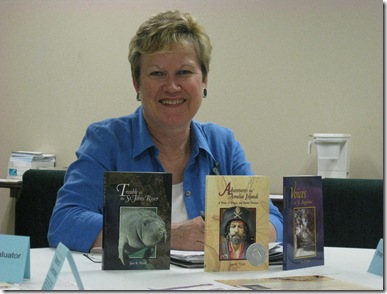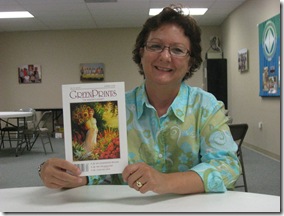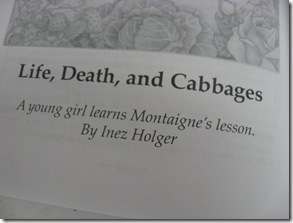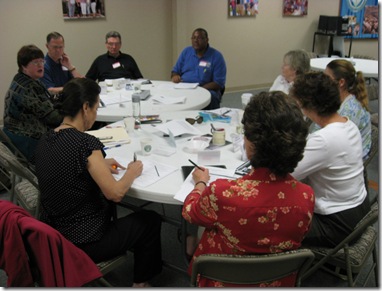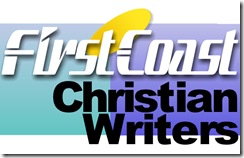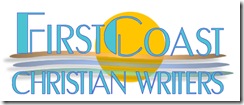This evening, Inez Holger covered the basics of writing for magazine publication, a venue that can add valuable writing credentials to your resume. Here are her top six tips:
- Identify your writing style
- Identify your market
- Match 'em up
- Study your intended publication
- Shift your style
- Submit, submit, submit

Identify Your Writing Style
What kind of writer are you? It’s important to identify the type of writing you do so that you can find a magazine that fits your style. The number one complaint from editors is that writers send material that does not “fit” their publication. In other words, don’t send sci-fi to Guideposts. Some categories to consider:
- Essays
- Humor
- Short story (fiction)
- Spiritual
- Reporting (facts only)
- Anecdotal
- Creative non-fiction (apply literary techniques to non-fiction)
- Intellectual (In-depth analysis of complex topics)

Identify Your Market
Once you have a grasp of the style of writing that you gravitate toward, you can then hone in on one or two of the HUNDREDS of markets looking for your work. For instance, in the market reference books listed below, you’ll find extensive lists of types of publications. For instance:
- Adventure Nonfiction Travel
- Arts Parenting Trade
- Business Poetry Women’s Issues
- Christian Regional (your part of the USA)
- Children Religion
- Cooking Science Fiction
- Diet/Nutrition Senior Citizen
- Family Short Stories
- Men’s Issues Self Help
- A Christian marketing manual lists the following (partial listing!):
- Church History Fillers (really short pieces)
- Christian Home schooling Inner Life
- Current/Social Issues Missions
- Devotional Personal Growth
- Doctrinal Prayer
- Encouragement Social Justice
- Essays Short Story
- Healing Take-Home Papers
- Humor Women’s Issues
Match “Em Up
If you always write funny pieces about your kids, then you can check out the markets on “Family,” or “Parenting.” Oh, you like to write stories FOR children. Check out the “Children” and “Teen/Young Adult” categories. Look under “Humor” just in case.
Now that you have a general idea, let’s get down to work.

Study Your Intended Publication
You’ve chosen “Highlights Magazine” and “Pockets.” Should you just go ahead and send whatever you’ve written? Not exactly.
1. Obtain writer’s guidelines
Most of these are on magazine web sites or on writer’s web sites.
The guidelines tell you what the publisher wants, the word count allowed, themes for certain months, when to submit, how to submit.
2. Read at least 3 copies of the magazine, which you can find at the public library, at book-store magazine racks, at church libraries, in
the doctor’s office! Request copies from the publication itself.
By studying what they publish, you’ll know if you truly can
write for them. You’ll find out if the editor is interested in pieces with a touch of humor or prefers anecdotes, especially from beginning writers. You often have to start with small pieces before the editor will trust you with bigger ones. Perhaps you aren’t quite up to their level of writing yet, but you can make a mental note and aim for the future.
3. For an in-depth look at a column or regular feature of a magazine, try
the following:
Take 4 colored markers and highlight these specifics as you read –
- Quotes
- Names and titles
- Facts, statistics, technical lingo
- Figurative language and structural details
Be sure that your article includes the same features.
Shift Your Style
As you study the magazine and writer’s guidelines, you find that your pieces always tend to have a word count of 2,000. They want 1,000. Start cutting. You write well for Catholic Digest but if you really want to send the piece to Guideposts, you might have to cut some references that are too denominationally specific. If you want to send the same piece to Reader’s Digest, you might need to take the same story and emphasize a different aspect (the adventure, instead of your biblical insight).
Tweak. Accommodate. In the process, you’ll get more practice writing!
If you don’t want to change anything, don’t send your piece anyway, hoping that the publisher will be so impressed that he/she will break his/her own rules.
Submit
Stick to the guidelines!!!!!!!!! Margins, paper, email, disk. SASE.
Stick it in the mail. 
Helpful Hints and Resources
- Even though you are writing a book, consider magazine publications as a means to adding writing credits to your resume and as a possible means of opening doors with book publishers.
- Consider writing for contests. The practice will improve your writing skills and who knows, you might even win.
- You can check out back copies of magazines from the library.
- “The Writer” has an ongoing updated list of markets and highlights a different market area each month. May 2008- History. Read the library copy instead of purchasing.
- “The Writers’ Journal” has monthly market lists, with new magazines and very specific markets.
- Consider trade magazines if you have particular expertise in an area. Agriculture, dentistry, retail, you name it.
- Good web sites: www.writersdigest.com, http://www.pw.org/toolsforwriters, http://www.pwcwriters.org/links.htm
- The following market guides will keep you busy:
- Christian Writer’s Market Guide by Sally Stuart
- The American Directory of Writer’s Guidelines
- Writer’s Market (available for several genres)
Last of all, don’t underestimate your life experiences. You cook, you clean, you eat, you raise children, you garden, you collect coins or salt shakers, you fix cars, you have relatives, you feel pain, you love cheesecake, you’ve seen every George Lucas movie, you play guitar, you’ve been young and now you’re old. Nothing to write about? Think again.
About Inez Holger
Inez has written since elementary school, completing a book of poetry by ninth grade. Her nonfiction works have appeared in various publications such as The Upper Room, Greenprints, The Family and Parenting Treasures. She worked as a contributing editor for Jacksonville Sports Magazine and wrote weekly news articles and features for a local community newspaper.
For the past several years she has had the opportunity to tutor students from home schooled and public school backgrounds while working on a collection of family vignettes and a series of devotions for Christians struggling with their faith.
Total Attendees at today's meeting: 9
New members joining today:
Total current members: 10






